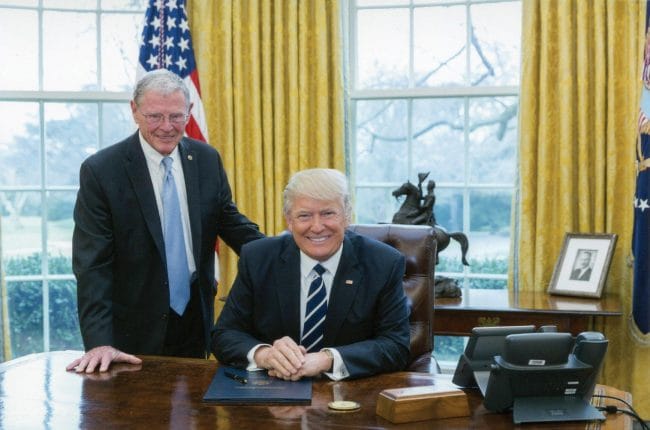I maintain a website of quotations, so once every four years or so I dip into the grab bag there for other people’s profound words about elections and voting and the like.
This year I had two classes of quotes I picked: ones about character (and, just to be clear, Donald Trump’s lack of anything that can be considered the sort of character you want to have in a US President, or even your McDonalds’ fry wrangler), and ones about voting and participation (and why it’s important).
Here’s what I had to say, cleverly covered up by other people saying it.
Character, and What We Do/Don’t Want in a President’s
If a public man tries to get your vote by saying that he will do something wrong in your interest, you can be absolutely certain that if ever it becomes worth his while he will do something wrong against your interest.
¶ Theodore Roosevelt (1858-1919) American politician, statesman, conservationist, writer, US President (1901-1909)
Speech (1910-04-23), “Citizenship in a Republic [The Man in the Arena],” Sorbonne, Paris
The supreme quality for leadership is unquestionably integrity. Without it, no real success is possible, no matter whether it is on a section gang, a football field, in an army, or in an office. If a man’s associates find him guilty of phoniness, if they find that he lacks forthright integrity, he will fail. His teachings and actions must square with each other. The first great need, therefore, is integrity and high purpose.
¶ Dwight David Eisenhower (1890-1969) American general, US President (1953-61)
(Attributed)
The American fascists are most easily recognized by their deliberate perversion of truth and fact. Their newspapers and propaganda carefully cultivate every fissure of disunity, every crack in the common front against fascism. They use every opportunity to impugn democracy. They use isolationism as a slogan to conceal their own selfish imperialism. They cultivate hate and distrust of both Britain and Russia. They claim to be superpatriots, but they would destroy every liberty guaranteed by the Constitution. They demand free enterprise, but are the spokesmen for monopoly and vested interest. Their final objective toward which all their deceit is directed is to capture political power so that, using the power of the state and the power of the market simultaneously, they may keep the common man in eternal subjection.
¶ Henry Wallace (1888-1965) American politician, journalist, farmer, businessman
“The Danger of American Fascism,” New York Times (1944-04-09)
Since the beginning of our American history, we have been engaged in change — in a perpetual peaceful revolution — a revolution which goes on steadily, quietly adjusting itself to changing conditions — without the concentration camp or the quick-lime in the ditch.
¶ Franklin Delano Roosevelt (1882-1945) American lawyer, politician, statesman, US President (1933-1945)
Speech (1941-01-06), “State of the Union [Four Freedoms Speech],” Washington, D. C.
Justice requires us to remember that when any citizen denies his fellow, saying, “His color is not mine,” or “His beliefs are strange and different,” in that moment he betrays America, though his forebears created this Nation.
¶ Lyndon B. Johnson (1908-1973) American politician, educator, US President (1963-69)
Speech (1965-01-20), Inaugural Address, Washington, D. C.
Dependability, integrity, the characteristic of never knowingly doing anything wrong, that you would never cheat anyone, that you would give everybody a fair deal. Character is a sort of an all-inclusive thing. If a man has character, everyone has confidence in him. Soldiers must have confidence in their leader.
¶ Omar Bradley (1893-1981) American general
Interview with Edgar Puryear (1963-02-15)
A democracy cannot function effectively when its constituent members believe laws are being bought and sold.
¶ John Paul Stevens (1920-2019) American lawyer, US Supreme Court Justice (1975-2010)
Citizens United v. FEC, 558 U.S. 310 (2010) [dissenting]
Because power corrupts, society’s demands for moral authority and character increase as the importance of the position increases.
¶ John Adams (1735-1826) American lawyer, Founding Father, statesman, US President (1797-1801)
(Attributed)
If you don’t understand that you work for your mislabeled “subordinates,” then you know nothing of leadership. You know only tyranny.
¶ Dee W. Hock (b. 1929) American businessman
“Unit of One Anniversary Handbook,” Fast Company (1997-02-28)
The best foreign policy is to live our daily lives in honesty, decency, and integrity; at home, making our own land a more fitting habitation for free men; and abroad, joining with those of like mind and heart, to make of the world a place where all men can dwell in peace.
¶ Dwight David Eisenhower (1890-1969) American general, US President (1953-61)
Inaugural Gabriel Silver lecture, Columbia University (1950-03-23)
For of those to whom much is given, much is required. And when at some future date the high court of history sits in judgment on each of us — recording whether in our brief span of service we fulfilled our responsibilities to the state — our success or failure, in whatever office we hold, will be measured by the answers to four questions:
First, were we truly men of courage — with the courage to stand up to one’s enemies — and the courage to stand up, when necessary, to one’s associates — the courage to resist public pressure, as well as private greed?
Secondly, were we truly men of judgment — with perceptive judgment of the future as well as the past — of our mistakes as well as the mistakes of others — with enough wisdom to know what we did not know and enough candor to admit it.
Third, were we truly men of integrity — men who never ran out on either the principles in which we believed or the men who believed in us — men whom neither financial gain nor political ambition could ever divert from the fulfillment of our sacred trust?
Finally, were we truly men of dedication — with an honor mortgaged to no single individual or group, and comprised of no private obligation or aim, but devoted solely to serving the public good and the national interest?
Courage — judgment — integrity — dedication — these are the historic qualities […] which, with God’s help […] will characterize our Government’s conduct in the four stormy years that lie ahead.
¶ John F. Kennedy (1917-1963) US President (1961-63)
Speech (1961-01-09), Massachusetts legislature, Boston
You can tell the size of a man by the size of the thing that makes him mad.
¶ Adlai Stevenson (1900-1965) American diplomat, statesman
Speech (1952-08-28), “Faith in Liberalism,” State Committee of the Liberal Party, New York City
You see the thing you have to remember. When you get to be President, there are all those things, the honors, the twenty-one-gun salutes, all those things. You have to remember it isn’t for you. It’s for the Presidency, and you’ve got to keep yourself separate from that in your mind. If you can’t keep the two separate, yourself and the Presidency, you’re in all kinds of trouble.
¶ Harry S Truman (1884-1972) US President (1945-1953)
In Merle Miller, Plain Speaking: An Oral Biography of Harry S. Truman, ch. 15 (1973)
Dishonor in public life has a double poison. When people are dishonorable in private business, they injure only those with whom they deal or their own chances in the next world. But when there is a lack of honor in Government, the morals of the whole people are poisoned.
¶ Herbert Hoover (1874-1964) American engineer, bureaucrat, President of the US (1928-32)
Speech (1951-08-30), “Concerning Honor in Public Life,” Iowa Centennial Celebration (national radio broadcast), Des Moines
The only way of really finding out a man’s true character is to play golf with him. In no other walk of life does the cloven hoof so quickly display itself.
¶ P. G. Wodehouse (1881-1975) Anglo-American humorist, playwright and lyricist [Pelham Grenville Wodehouse]
“Ordeal by Golf,” Collier’s Magazine (1919-12-06)
Precisely in trifles, wherein a man is off his guard, does he show his character, and then we are often able at our leisure to observe in small actions or mere mannerisms the boundless egoism which has not the slightest regard for others and in matters of importance does not afterwards deny itself, although it is disguised. We should never miss such an opportunity. If in the petty affairs and circumstances of everyday life, in the things to which the de minimis lex non curat applies, a man acts inconsiderately, seeking merely his own advantage or convenience to the disadvantage of others; if he appropriates that which exists for everybody; then we may be sure that there is no justice in his heart, but that he would be a scoundrel even on a large scale if his hands were not tied by law and authority; we should not trust him across our threshold. Indeed, whoever boldly breaks the laws of his own circle will also break those of the State whenever he can do so without risk.
¶ Arthur Schopenhauer (1788-1860) German philosopher
Parerga and Paralipomena, Vol. 1, “Aphorisms on the Wisdom of Life [Aphorismen zur Lebensweisheit],” ch. 4 “Counsels and Maxims [Paränesen und Maximen],” § 3.29 (1851) [tr. Payne (1974)]
Something of a person’s character may be discovered by observing when and how he smiles. Some people never smile; they grin.
¶ Christian Nestell Bovee (1820-1904) American epigrammatist, writer, publisher
Intuitions and Summaries of Thought, vol. 2 (1862)
We can have no better clue to a man’s character than the company he keeps.
¶ Niccolò Machiavelli (1469-1527) Italian politician, philosopher, political scientist
The Discourses on Livy, Book 3, ch. 34 (1517) [tr. Thomson (1883)]
Voting and Democracy and Participation and Elections
Build movements. Vote with your values, but vote strategically. Voting isn’t a Valentine. It’s a chess move.
¶ Rebecca Solnit (b. 1961) American writer, historian, activist
Facebook (2016-10-17)
If a nation values anything more than freedom, it will lose its freedom; and the irony of it is that if it is comfort or money that it values more, it will lose that too. And when a nation has to fight for its freedom, it can only hope to win if it possesses certain qualities: honesty, courage, loyalty, vision and self-sacrifice. If it does not possess them, it has only itself to blame if it loses its freedom.
¶ W. Somerset Maugham (1874-1965) English novelist and playwright [William Somerset Maugham]
Strictly Personal, § 30 (1941)
Of course I vote! If you’re a woman, or a person of color, or a person who doesn’t own property, or even a white male who doesn’t belong to the nobility, centuries of struggle and many deaths have bought you the right to vote. I vote to keep faith with peasant rebels and suffragist hunger strikers and civil rights workers braving the lynch mobs of the South, if for no other reason. But there is another reason — because who we vote for has an enormous impact on real peoples’ lives.
¶ Starhawk (b. 1951) American writer, activist, feminist theologian [b. Miriam Simos]
Blog post (2016-11-07), “Pre-Election Day Thoughts”
Monarchy is like a sleek craft, it sails along well until some bumbling captain runs it into the rocks. Democracy, on the other hand, is like a raft. It never goes down but, dammit, your feet are always wet.
¶ Fisher Ames (1758-1808) American politician, orator
(Attributed)
The people — the people — are the rightful masters of both Congresses, and courts — not to overthrow the Constitution, but to overthrow the men who pervert it.
¶ Abraham Lincoln (1809-1865) American lawyer, politician, US President (1861-65)
Speech (1859-09-16), Columbus, Ohio
Another point of disagreement [with Lesser Evil Voting] is not factual but involves the ethical/moral principle […] sometimes referred to as the “politics of moral witness.” Generally associated with the religious left, secular leftists implicitly invoke it when they reject LEV on the grounds that “a lesser of two evils is still evil.” Leaving aside the obvious rejoinder that this is exactly the point of lesser evil voting — i.e. to do less evil, what needs to be challenged is the assumption that voting should be seen a form of individual self-expression rather than as an act to be judged on its likely consequences. […] The basic moral principle at stake is simple: not only must we take responsibility for our actions, but the consequences of our actions for others are a far more important consideration than feeling good about ourselves.
¶ Noam Chomsky (b. 1928) American linguist and activist
“An Eight Point Brief for LEV (Lesser Evil Voting)” (2016-06-15) [with John Halle]
Bad officials are elected by good people who do not vote.
¶ George Jean Nathan (1892-1958) American editor and critic
(Attributed)
The punishment which the wise suffer who refuse to take part in the government is to live under the government of worse men.
¶ Plato (c.428-347 BC) Greek philosopher
Republic, Book 1, 347c
I am a democrat because I believe in the Fall of Man. I think most people are democrats for the opposite reason. A great deal of democratic enthusiasm descends from the ideas of people like Rousseau, who believed in democracy because they thought mankind so wise and good that everyone deserved a share in government. The danger of defending democracy on those grounds is that they’re not true. And whenever their weakness is exposed, the people who prefer tyranny make capital out of the exposure. I find that they’re not true without looking further than myself. I don’t deserve a share in governing a hen-roost, much less a nation. Nor do most people — all the people who believe advertisements, and think in catchwords and spread rumours. The real reason for democracy is just the reverse. Mankind is so fallen that no man can be trusted with unchecked power over his fellows. Aristotle said that some people were only fit to be slaves. I do not contradict him. But I reject slavery because I see no men fit to be masters.
¶ C. S. Lewis (1898-1963) English writer, literary scholar, lay theologian [Clive Staples Lewis]
Essay (1943-08-27), “Equality,” The Spectator
CALVIN: When I grow up, I’m not going to read the newspaper and I’m not going to follow complex issues and I’m not going to vote. That way I can complain when the government doesn’t represent me. Then, when everything goes down the tubes, I can say the system doesn’t work and justify my further lack of participation.
HOBBES: An ingeniously self-fulfilling plan.
CALVIN: It’s a lot more fun to blame things than to fix them.
Bill Watterson (b. 1958) American cartoonist
Calvin and Hobbes (1992-05-18)

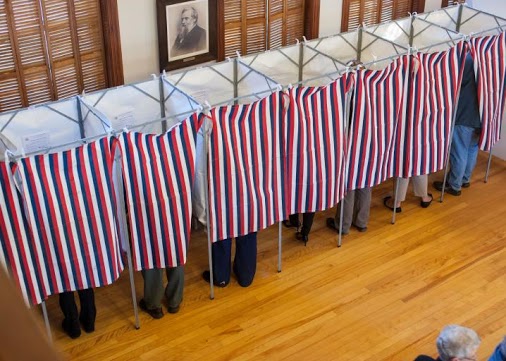
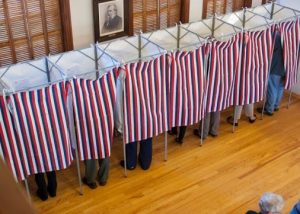
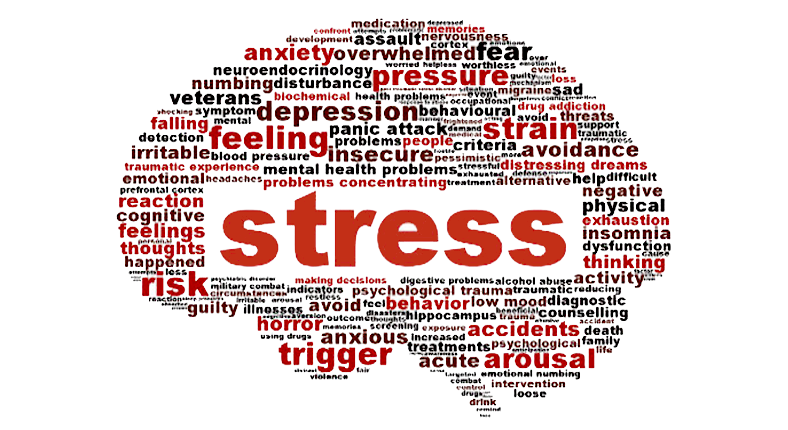
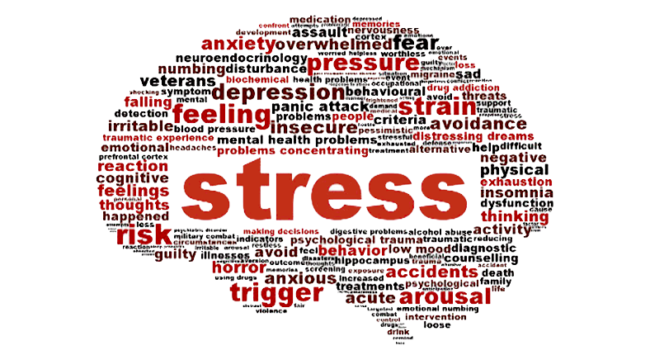
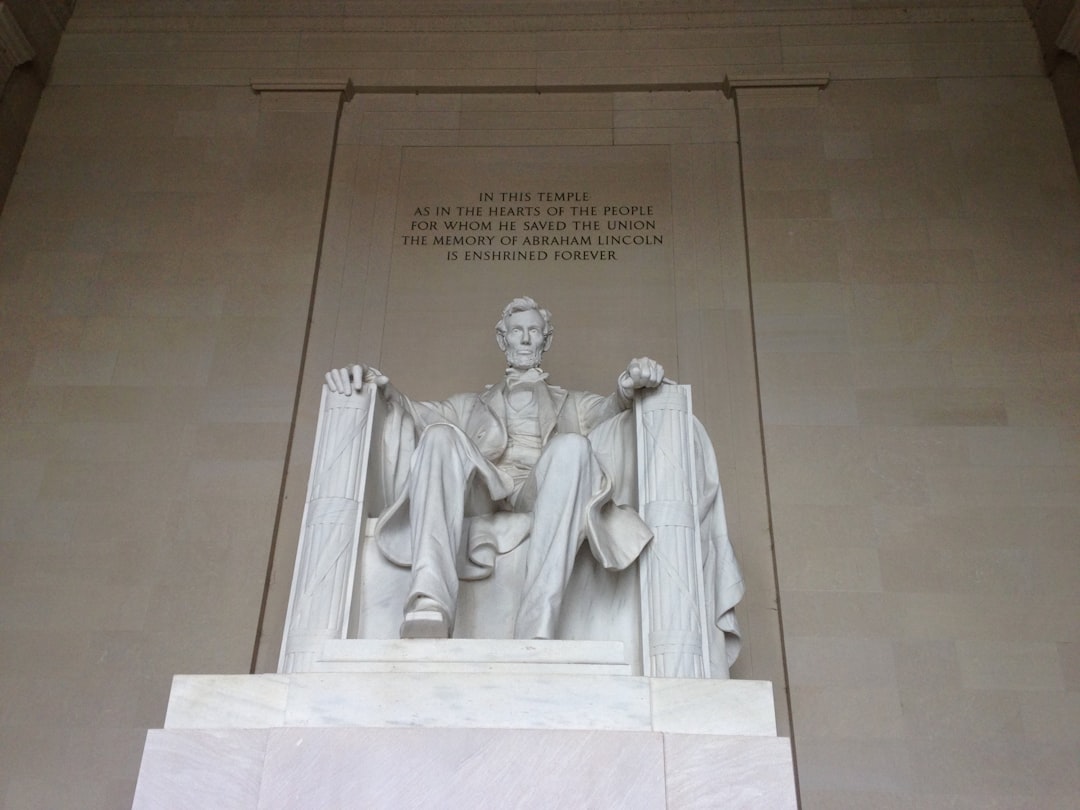






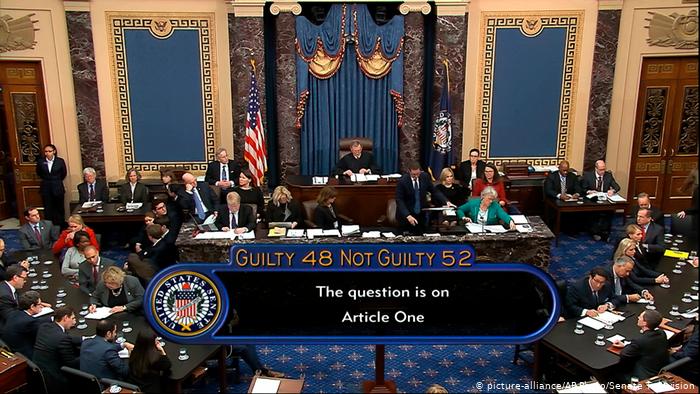
![Burke-Your-representative-owes-you-industry-judgment-sacrifices-it-to-your-opinion-wist_info-quote[1]](https://hill-kleerup.org/blog/wp/wp-content/uploads/2021/01/Burke-Your-representative-owes-you-industry-judgment-sacrifices-it-to-your-opinion-wist_info-quote1-650x504.png)



